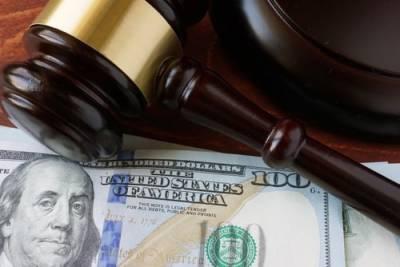 For people who are arrested and charged with a crime, the first priority is often to determine how they can be released from custody. Securing a speedy release can be crucial, since it can help a person avoid consequences such as the loss of a job or issues that affect their custody of their children. In many cases, a person will be required to pay a certain amount of bail. However, some people may not have the resources to make a large cash payment, and they may be required to remain in custody until their case is resolved. To address this issue, Connecticut judges will be implementing a new rule that will allow lower amounts of bail to be paid in certain situations.
For people who are arrested and charged with a crime, the first priority is often to determine how they can be released from custody. Securing a speedy release can be crucial, since it can help a person avoid consequences such as the loss of a job or issues that affect their custody of their children. In many cases, a person will be required to pay a certain amount of bail. However, some people may not have the resources to make a large cash payment, and they may be required to remain in custody until their case is resolved. To address this issue, Connecticut judges will be implementing a new rule that will allow lower amounts of bail to be paid in certain situations.
When a person is arrested in Connecticut, bail will be set by the police, staff members of Pretrial Services, or a judge. After paying this amount, the person may be released from custody, and they will be required to appear in court at all scheduled hearings and during their trial. After the completion of the case, the amount paid will be returned to the person, as long as they met all requirements put in place when bail was set.
The amount of bail that a person will be required to pay will be based on a variety of factors, including the nature of the alleged offense, any previous criminal convictions on their record, and their ties to their family and community. Higher amounts of bail may be appropriate if a person is considered a flight risk, while lower amounts may be set for those who have limited financial resources and are likely to remain in the area and appear in court during their case.
In addition to a cash payment, certain conditions of bail may also be put in place. These may include travel restrictions that require a person to stay in the state of Connecticut, prohibitions on activities such as drug or alcohol use, an order to stay away from an alleged victim of a crime, or requirements to check in with the police regularly during their case.
The purpose of bail is to ensure that a person will appear in court during their case while also ensuring that they will not pose a threat to public safety. Requiring payment and returning the amount paid to a defendant after their case is complete encourages a person to abide by all requirements that will apply to them.
The requirement to pay bail can be a serious issue for people with limited financial resources. In some cases, defendants are forced to remain in custody during their case because they cannot pay bail, leading to significant problems in their lives. A person can have a bail bondsman pay bail on their behalf, and this will require them to pay around 10 percent of the total amount of bail. This payment is non-refundable.
To address concerns about bail for people with limited resources, Connecticut currently allows for a lower amount of bail to be paid in certain situations. If the amount of bail is set at $20,000 or less, a person can pay 10 percent of the total amount. This payment is refundable once a criminal case is completed.
Recently, the state's Superior Court Judges made additional changes to this policy. Starting on January 1, 2024, the threshold for reduced bail will be increased to $50,000. When bail is set at $50,000 or less, a person may pay 7 percent of the total amount. This is meant to make bail more affordable and ensure that the amount paid can be returned to those who have met all requirements during their cases.
For anyone who has been arrested and is facing criminal charges in Connecticut, the ability to post bail can be critical. With new rules being implemented that may change how bail is handled in certain situations, it is important for defendants to understand the available options. At Woolf & Ross Law Firm, LLC, our Hartford criminal defense attorney can provide guidance on how to address bail, and we can advocate on your behalf to ensure that you will be able to get released as quickly as possible. We will also provide dedicated representation to help you defend against criminal charges and resolve your case successfully. Contact us today at 860-290-8690 to arrange a complimentary consultation.
Sources:
https://www.wtnh.com/news/connecticut/hartford/connecticut-superior-court-judges-vote-to-lower-bail-threshold-raise-eligibility/
https://www.jud.ct.gov/cssd/bail_faq.htm
https://www.fox61.com/article/features/look-connecticuts-cash-bail-system/520-158931e9-598d-4013-ad60-d273d653c229
 50 Founders Plaza
50 Founders Plaza

